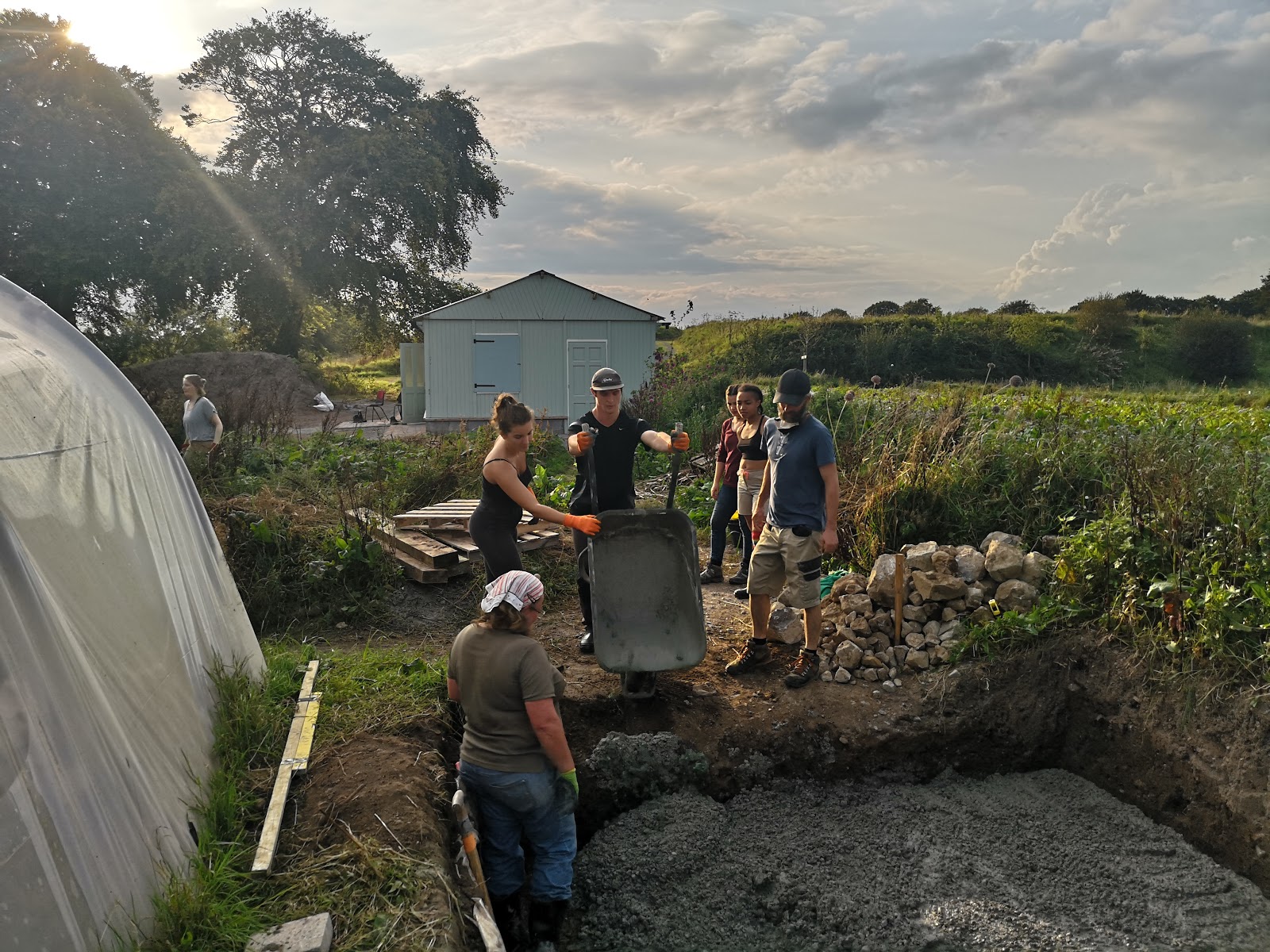
Alison Brogan and Oliver Moore.
As the pandemic collides with inequality and the ecological emergencies it is clear that we need to change our relationship to food and the people who produce it. Fresh approaches to building resilient local food economies are emerging. Innovative communities are experimenting with ways to shorten, amplify and democratise supply chains. To this end, ARC2020, Cultivate and Forum Synergies came together to organise a webinar where pioneering community-led initiatives operating at the regional level were showcased, with the aim of replicating, scaling up and scaling across these approaches.
Local Food – Reimagining Regional Responses was about sharing the ideas of innovative communities that are experimenting with ways to shorten, amplify and democratise food supply chains with a view to exploring how such approaches might be replicated, scaled up and scaled across.
Pioneering initiatives, impressive in size and ambition, ethos and impact joined us: Peri-urban Oosterwold, DESIRA, the Redon Sustainable Food Consortium, La Ceinture Aliment-Terre Liégeoise and Cloughjordan Community Farm. Equally noteworthy were the 100+ participants who tuned in generously to share knowledge, inspiration and food for thought, continuing the quest to re-imagine our regional responses for a better food system.
Hearing from practitioners that are making an impact across Europe with unique approaches to building local food resilience was refreshing – a tonic at a time when many are drained by pandemic fatigue, and a reminder as we look forward to 2021 that there is much done, but more to do.
Key points from the speakers’ presentations are outlined below, along with some insights shared by participants. You can watch the full recording here and at the link above. All presentations are available at the end of this article too.
Peri-Urban Oosterwold and DESIRA Living Labs

On 4,300 hectares of reclaimed land east of Amsterdam, the Oosterwold community are collectively creating a new residential area that integrates urban agriculture into urban planning. In doing so, Oosterwold provides a blueprint for how cities can prioritise local food production when they expand.
Jan-Eelco Jansma who works with peri-urban Oosterwold introduced us to the future of urban planning: each resident who purchases land in Oosterwold must leave 50% of the plot to food production.
This has led to the emergence of CSAs, urban wineries and the embracing of urban agriculture by laypersons who grow their own food on plots of between 500m2 and 2500m2. There is also the possibility for experienced growers to grow food on residents’ plots.
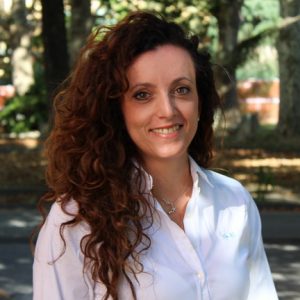 Silvia Rolandi (left) explained that it is through the study of living labs such as peri-urban Oosterwold, that DESIRA – Digitisation: Economic and Social Impacts in Rural Areas – assesses present and future socio-economic impacts of digitalisation on agriculture, forestry and rural areas.
Silvia Rolandi (left) explained that it is through the study of living labs such as peri-urban Oosterwold, that DESIRA – Digitisation: Economic and Social Impacts in Rural Areas – assesses present and future socio-economic impacts of digitalisation on agriculture, forestry and rural areas.
DESIRA Living Labs are 20 networks of stakeholders disseminated throughout Europe, selected to represent a variety of agricultural, rural and forestry domains. They are constituted around a focal question (e.g. How to reduce the risk of forest fires?) and co-develop ideas, scenarios, digital storytelling outputs, and socio-technical solutions related to digitalisation.
Helping residents that are new to urban agriculture is where the DESIRA living lab comes into play in Oosterwold. The project found that urban growers in the area were aware that they were producing more than they could consume. In partnership with a co-operative, Jan and his colleagues seek to align new digital systems with the needs of residents to promote knowledge transfer as well the commercial and non-commercial transfer of food.
The Redon Sustainable Food Consortium
 Xavier Hamon (left) of the Redon Sustainable Food Consortium highlighted an important point in relation to the political impact of the local food movement: creating change is about more than the accumulation of good food initiatives as this alone does not necessarily lead to systemic transformation.
Xavier Hamon (left) of the Redon Sustainable Food Consortium highlighted an important point in relation to the political impact of the local food movement: creating change is about more than the accumulation of good food initiatives as this alone does not necessarily lead to systemic transformation.
Much like the Nantes Cattle Festival where the project originated, the idea of the Sustainable Food Consortium is to bring together people from all backgrounds and create space for discussion at local level. It is about creating a food culture, people re-engaging in the democratic process and realising that this can create a more powerful food transition than a government food policy imposed from the top-down, or pale imitations of real citizen initiatives. Xavier cited predatory threats to CSA, to land trusts and so on in his presentation – initiatives that look bottom up and citizen controlled but are in fact privatised and proprietary.
Redon as a place generates a large agricultural output but there is little room for local projects to develop, with a lack of local production and processing facilities and land grabbing issues among the inhibiting factors. The re-localisation of local food processing facilities is therefore important to the Redon Sustainable Food Consortium, done on food sovereignty terms and not in a top down manner. The relevance of this objective in other European regions was noted by a number of the event’s participants.
Valérie Geslin of ARC2020 has been in contact with this progressive initiative as part of an ARC2020 project in France socio-ecological transition which we will be presenting soon, so we look forward to hearing more about the Redon Sustainable Food Consortium’s progress in the near future. Xavier’s Presentation in full is available at the end of this article, and is highly recommended for its detailed background and context.
Ceinture Aliment-Terre Liégeoise (CATL)
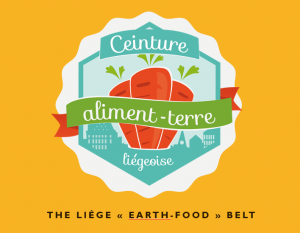 La Ceinture Aliment-Terre Liégeoise (CATL) or “The Lièges Earth-Food Belt” brings together and cross-fertilises food co-operatives with a social agenda in the Belgian city of Liège. It is a radical plan to mobilise the people of Liège in the creation of short, ecological food chains and a sustainable food supply for the region.
La Ceinture Aliment-Terre Liégeoise (CATL) or “The Lièges Earth-Food Belt” brings together and cross-fertilises food co-operatives with a social agenda in the Belgian city of Liège. It is a radical plan to mobilise the people of Liège in the creation of short, ecological food chains and a sustainable food supply for the region.
Antoine Lejeune shared with us the story of how Les Petits Producteurs – a co-operative under the CATL umbrella – was founded in 2017 with the view to generating demand for sustainable and organic food in order to help foster that type of production.
Today, Les Petits Producteurs has four shops selling local and/or organic produce in the Liège area, an annual turnover of more than 3.5 million euro and provides 21 permanent jobs. The cooperative provides strong support to local producers.
Les Petits Producteurs keeps costs down through a number of key principles including a “one product for one need” mode of operation and minimising intermediaries in the value chain. This helps ensure that as much value as possible goes back to the producer (while paying employees a decent wage).
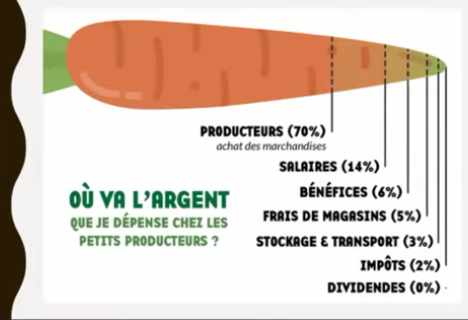
And the work of Les Petitis Producteurs does not end there. In dialogue with local authorities and with the support of Ceinture Aliment-Terre Liégeoise, Les Petits Producteurs has established Cre@te Farm to support two young vegetable crop producers in setting up their own enterprise.
The project secured a long-term lease on unused land owned by the city, overcoming the access issues that many young producers face. Additionally, Les Petits Producteurs provides free financing to the cultivators, takes care of commercialisation elements of the enterprise and offers part-time employment during the winter months. Acting as an incubator, but not a controlling entity, Les Petits Producteurs gives the producers the freedom to progress the project as they please.
This is an inspiring approach to the sustainable cultivation of unused publicly owned land. Antoine noted that other cities have been in touch with them to enquire about the application of Cre@te Farm.
Cloughjordan Community Farm
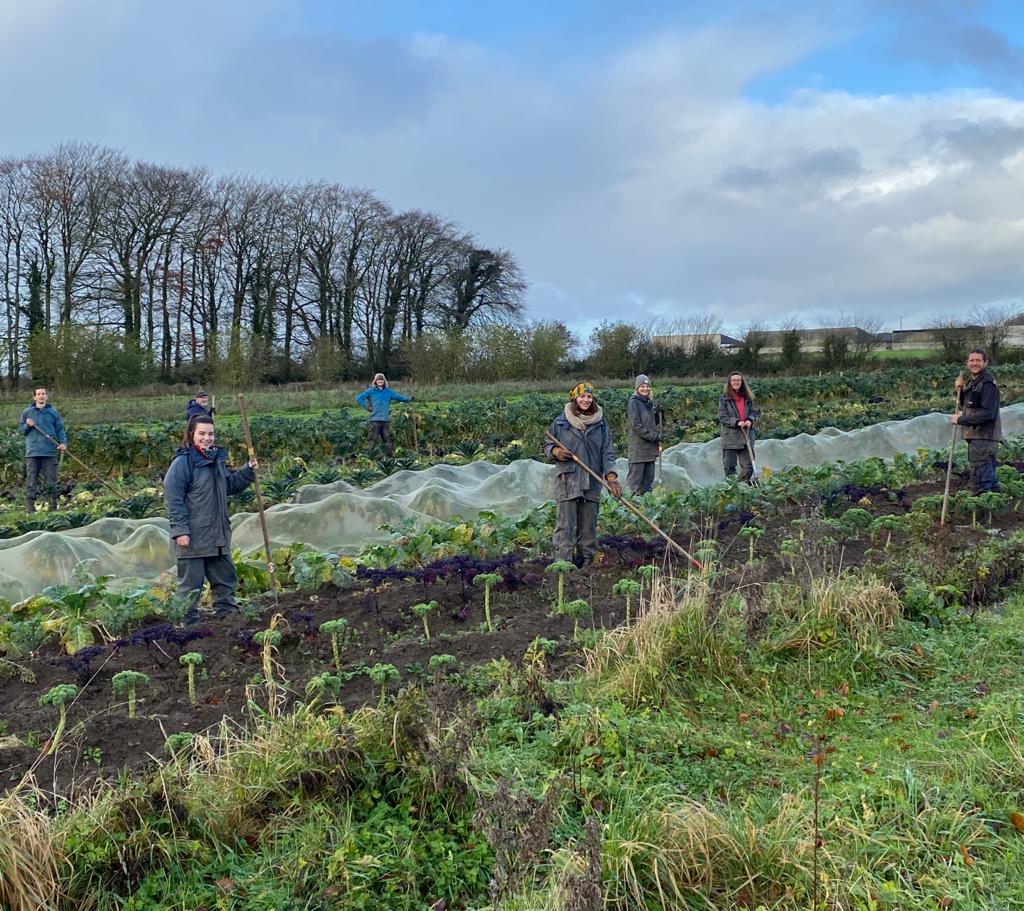
Cloughjordan Community farm (CCF) is a member owned and operated agroecological farm in the Irish midlands, and the location for this event’s digital broadcast. The community enterprise centre in Cloughjordan ecovillage is developing a digital studio, and it is from here that the event was hosted. The 67 acre ecovillage also contains the 6 acres of horticulture land the farm manages, as well as an ecosystem of other interesting initiatives, including a fab lab, bakery, edible landscape, allotments, district heating system, forestry, co-working spaces and sustainably built accommodation., among other assets.
CCF is “practicing food sovereignty” as Davie and Ollie said, because it’s a work in progress. This means having 1/3 of the land in green manures for soil fertility and biodiversity purposes; it means composted farmyard manure; it means a range of other agroecological techniques from rotations to bacterial inoculations to integrating a range of long term funded internships via the ESC (European Solidarity Core).
It especially means seed saving open pollinated seeds that are regionally adapted to the soil and climate. But it also means participatory budgeting and a take-what-you-need distribution ethos (as opposed to a box scheme with set amounts of food).
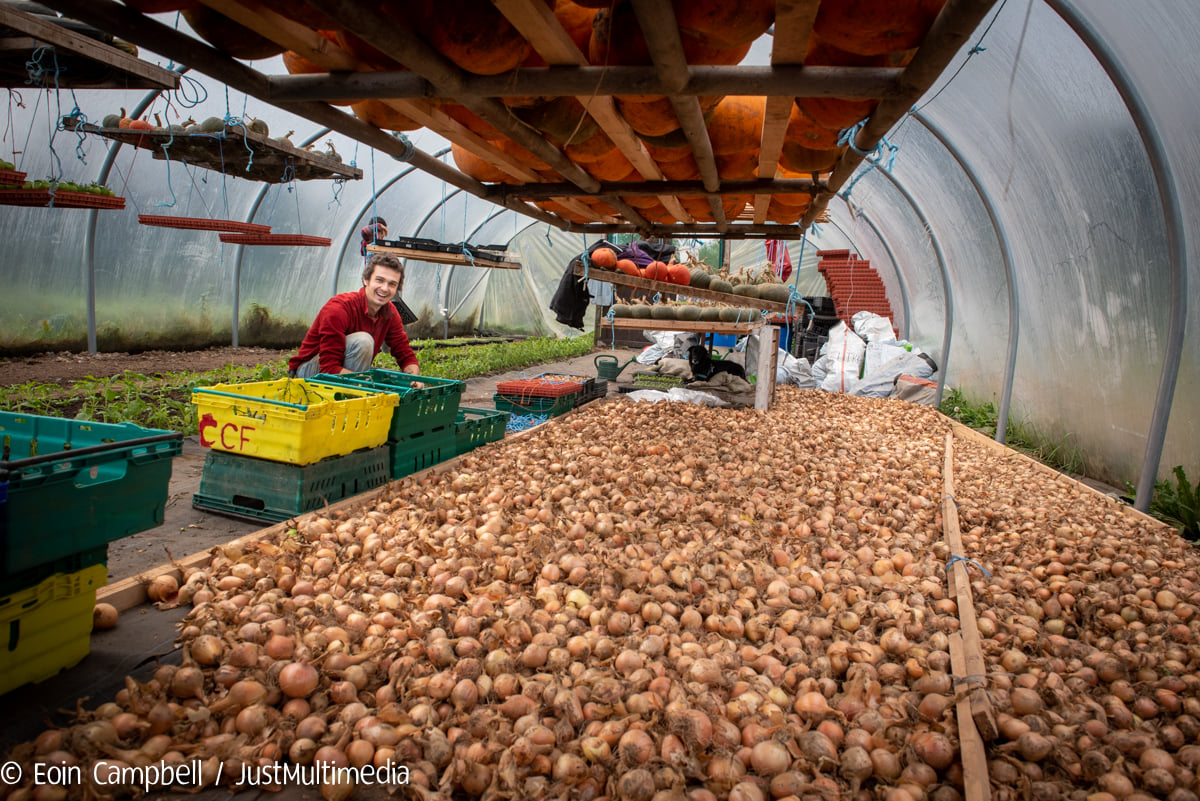
What’s especially innovative about this set up, however, is the upcoming incorporation of a digital farmers market for the locale, spearheaded by the farm and community enterprise centre. Cloughjordan Community Farm is in the process of integrating the open food network software platform into its existing structure to establish a food and local products hub for the region, using the enterprise centre as a hub, to help the region develop its resilience.
This example clearly shows how a community asset, such as a farm, can lead on regional resilience for all. Further, this is also a direct follow-on from the June webinar, when Open Food network itself was presented. See below for a video and our article in further reading.
Insights from Participants – Focus on Digitalisation
Participants were animated on a number of topics, but digitalisation was an especially hot one. There was a feeling that digitalisation in agriculture and rural areas should be embraced with a healthy dose of skepticism: particpants were not especially enamoured with digitisation for the sake of it; rather, they favoured appropriate, affordable, low impact digital tools that help agroecological processes and practices develop.
Simone Matouch of Forum Synergies emphasised that the importance of traditional ecological knowledge is often overlooked in the conversation around digitalisation, and noted that when technology fails, or power outages occur, traditional ecological knowledge is what remains.
Liz Knight from ASEED Europe highlighted that there are significant energy and data concerns related to the use of tools such as drones and data monitoring.
Appropriate digitalisation can bring great benefits to agri-food and rural spaces but there needs to be checks and balances. This underscores the importance of the work of DESIRA – which assesses both the positive and negative socio-economic impacts of digitalisation; and the benefits of approaches like the Open Food Network as a digital market, where the code is owned by a charity and there is no opportunity for the system to be sold onto venture capitalists. Movements like Farm Hack, L’Atelier Paysan (see articles below) and more show how, with an agroecological mindset, the savvy use of local resources and plan-sharing on line can express a technological sovereignty to coalesce with and amplify food sovereignty.
To finish, interventions from Hannes Lorenzen (of both Forum Synergies and ARC2020) and Michael Dower (Prepare Network) wove people’s chat comments, questions and observations together into a quilt of rural resilience, a patchwork of places, drawn from decades of experience on initiatives embedded in rural sustainability.
It became clear that some movements move on, others bed down and build out, but there is, in this most unusual of years, a rural reimagining occurring all over Europe, if you just take the time to listen, to breath it in, to help it blossom.
The dozen or so new youth who have chosen to live and work with Cloughjordan Community Farm for a year, from Dublin or London, and Spain or Turkey, realise an active, agroecological farm in a thriving community, has as much, if not more, to offer than many’s the boarded up city centre right now. And many of our collective futures may end up being more rural than we can currently comprehend.
So it’s good, sometimes, to reimagine our rural.
Warm thanks to Cultivate and Forum Synergies, and the 100 or so participants from over 30 countries or regions that showed up and got involved. Watch out for more web events – seminars, podcasts and so on – from us in 2021.
Check out the speakers’ presentations
Silvia Rolandi and Jan-Eelco Jansma’s Presentation
Antoine Lejeune’s Presentation
Davie Philip and Oliver Moore’s Presentation
More readings on agroecology and regional resilience
Our June agroecology and local food web event
Europe’s Agroecology Movement – Stepping up in Times of Covid19
Selected relevant agroecology readings
Coping with Covid19 – Disruption, Protectionism and a People’s Agroecology
Agroecology Europe Forum | What is this Thing called Agroecology?
Rural Dialogues | Agroecology and a Living Countryside in the Netherlands
agroecology and digitalisation
AgtechTakeback – Technical Sovereignty and L’Atelier Paysan’s Tooled up French Farmers
AgTechTakeback | L’Atelier Paysan on Self-Build Communities in Farming
AgTechTakeback | Neither neoLuddism nor Corporate Ag – Towards a Holistic Agroecology
agroecology and gender
Rural and digitalisation
Rural Dialogues | The Three Conditions of Sustainable Rural Digitalisation


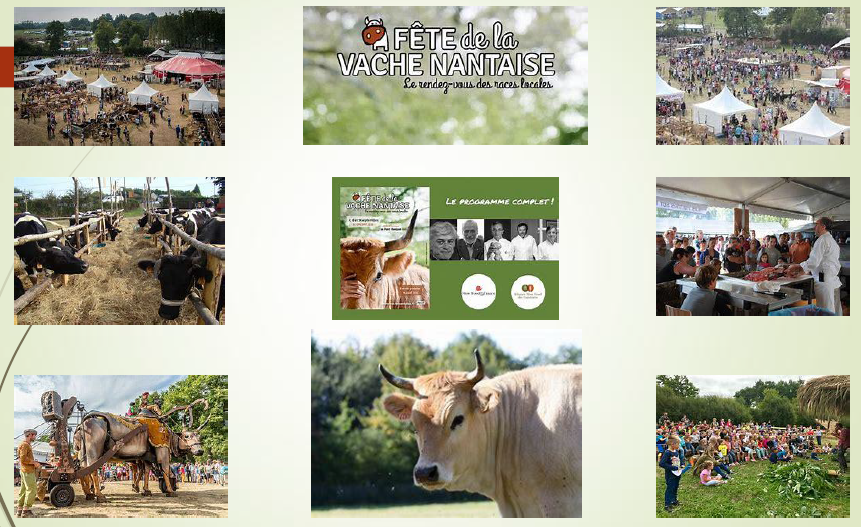


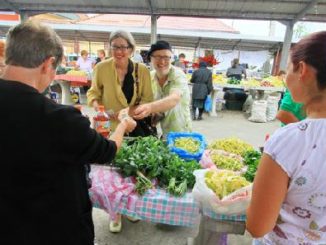
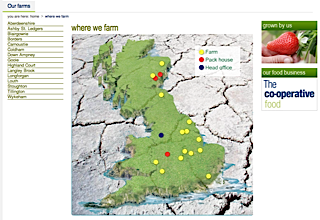
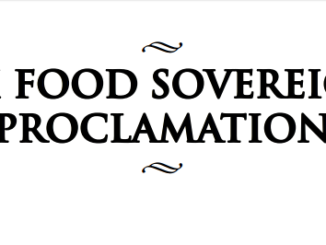
1 Trackback / Pingback
Comments are closed.